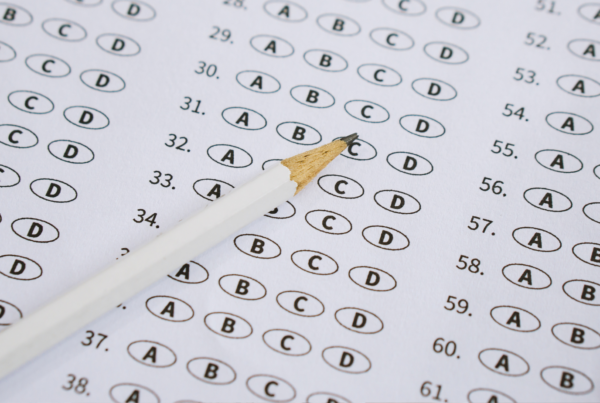 By Dan Marlin
By Dan Marlin
A popular topic of discussion in the higher education world is the growing use of “test-optional” admissions. Here, we lay out a series of questions you might have about test-optional, its implications for standardized testing, and its impact on students.
What does test-optional mean?
If a college or university is test-optional, students have the choice of whether to submit an ACT or SAT score as part of their applications. However, test-optional does not mean “test-blind” or “test-free;” if a student does decide to submit an ACT or SAT score to a test-optional institution, the school will consider it as part of the application package.
Why would a school “go test-optional?”
Prior to 2020, there were a number of reasons schools cited for going the test-optional route, but test-optional policies surged when the COVID-19 pandemic hit. As the virus spread across the country, testing sites closed and students lost out on the ability to take the ACT and SAT in their normal windows. Even now, nearly a year later, we see last-minute cancellations and postponements. From a practical standpoint, institutions of higher learning had little choice; students can’t submit test scores with their applications if they’re unable to test in the first place.
So are all colleges and universities test-optional now?
For the Class of 2021, basically. Compass Education Group tracks over 400 schools’ admissions policies and found that while 65% required the ACT or SAT before the pandemic, only about 3% do now. Nearly 89% are test-optional in some form. However, less than half of those schools are permanently test-optional or “test free;” the majority are trying out test-optional to see how it fits.
But what about the Class of 2022?
We’ve arrived at the crucial question: should students continue to take the ACT or SAT for the purposes of submitting test scores with their college applications? After all, if the pandemic abates in the spring and summer, opportunities to take the ACT and SAT should be widely available again. Colleges and universities will know that students could’ve taken a test, so they may regard a test-less submission with skepticism. Or not. The short, easy answer is that every school is different and will come to different conclusions about an applicant’s merit.
What’s the long answer?
Students should consider their competition. Highly-selective schools, such as Ivy League institutions and other top private universities, receive applications from the absolute highest-performing students, who are likely to have excelled academically, been hyper-involved in activities, and scored in the highest percentile ranges on the ACT and SAT. Students who submit test scores to these institutions believe their scores strengthen their applications, so their scores must be pretty darn high. We also know that test-optional policies have caused applications to increase at the most popular, most selective schools, so the more data points students can use to stand out, the better.
On the other hand, the vast majority of colleges and universities aren’t nearly as competitive. At one of these many schools, a score that wouldn’t be strong at a more highly-selective school could boost a student’s application.
One other very important aspect of test-optional that can get lost in the debate is this: individual schools and majors within colleges, as well as scholarships, may still require a standardized test score for admission. For example, if a student intends to apply to a business school at a test-optional institution, they should triple-check (or better yet, speak to a counselor) about any additional admissions requirements.
And after 2022…?
We don’t know. It’s impossible to say which colleges will decide to go test-optional permanently and which will switch back to requiring test scores, or if there’s another possibility altogether. It’s something many test prep companies are monitoring. When things get “back to normal” and applications stabilize, we’ll have a better idea.
So should I take the ACT or SAT?
Speaking as a longtime test prep tutor, I say yes! But we at Galin share frustrations about the difficulties in testing over the past year and the stresses they can add to an already-stressful time. Hopefully, the pandemic eases and future tests are given, as scheduled, at the sites at which they are supposed to be offered.
Ultimately, the main benefit of taking the ACT or SAT in a test-optional world, regardless of the trends that emerge over the next year or two, is flexibility. If a student does better than expected on the ACT and SAT, all of a sudden they have another favorable data point to add to their application. If their scores aren’t as high, that’s fine too, because the test-optional route exists. While it might seem a bit intimidating to think about college admissions as a competition, selective schools are by definition a high demand/low supply environment, so students should seek any competitive advantages they can get.
For most students, there is more upside than downside to taking an ACT or SAT. They can take the exams now and figure out whether to submit their scores later.





